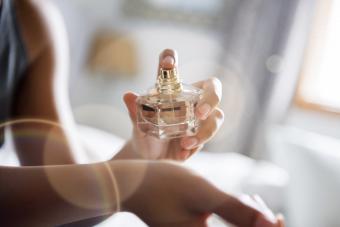
As the world evolves towards a more naturally healthy marketplace, it is no surprise that organic cosmetics will be found in the midst. More people are attempting to reduce the amount of additional chemicals they exposure their bodies too. This phenomenon can clearly be demonstrated by the significant growth of organic foods industry and filtered water marketplace.
Concepts Behind Organic Cosmetics
Purchasing organic cosmetics is not simply walking the aisles in search of a specific brand; you are also buying into a philosophy. In the natural marketplace, applying a topical product to enhance your beauty is not the concept. Instead, beauty is approached from a deeper approach where your appearance is improved not only by the makeup you employ, but the health of your skin and body. Ideally, when maintaining a healthy balance in your body, you will naturally improve your beauty and essentially create a beauty enhancement without the use of true cosmetics. Therefore, a minimalist approach to applying cosmetics can be employed by only using makeup on areas that actually need it.
Organic cosmetics are made of holistic raw materials that do not cause harm to humans, animals or the environment. These natural substances contain compounds identical to those found in our own bodies. Thus, they are more easily recognized, reducing the negative reactions and producing a more enhanced cosmetic result. Unfortunately, synthetic ingredients are cheaper than organic materials and have become the standard in the cosmetics marketplace.
Our skin is not an impermeable shield, but instead absorbs most of the products we rub on it. Given this, the insurgence of natural and healthy cosmetics can help improve the ultimate health of our whole body. If you do start to add more organic cosmetics to your beauty routine, whether store bought or homemade, keep in mind that they don't last as long, so be sure to watch expiration dates. Absorbing rotten organic ingredients is certainly not going to be a healthy addition to your lifestyle!
Ingredients to Avoid
In general, it is important to always check the ingredients in your cosmetics whether you desire fewer chemicals or have allergy concerns. Some manufactures, in response to the demand for more organic products, like to appear more natural then they really are by adding a few natural ingredients mixed into a chemical filled product. Of course, these ingredients are heavily advertised on the front, so checking the actual ingredients is the only sure way to know what you are actually placing on your skin.
Some of the most hazardous ingredients have been the chemical colorants. No doubt most have heard the story of the red dye that led to the elimination of red M&Ms, but that story was really the tip of the iceberg in colorant history. Many of the ones still used in the market today are known to cause allergies in certain individuals and some are even potential carcinogens.
Typical Ingredients to Check For
- FC&C Color Pigments - artificial colors that are known to cause sensitivity in some people.
- Fragrances - unless you are buying perfume, fragrance is not a necessary ingredient in your cosmetics and can cause reactions in some individuals. Many synthetic fragrances are filled with a variety of chemicals with unknown toxicity.
- Imidazonlidinyl Urea & DMOM Hydantoin - common preservatives that release formaldehyde - a chemical linked to skin irritations, allergies and migraines.
- Mineral Oil - a petroleum-derived oil that creates sensitivity in some and inhibits all skins ability to breathe.
- Propylene Glycol - an active ingredient in antifreeze - in high concentrations it causes kidney, liver and cell membrane damage.
While these products are non-organic ingredients that are potentially hazardous, keep in mind that even some natural ingredients can cause problems. A great example is talc, a common cosmetic ingredient that is naturally found within the earth. Unfortunately, it has been linked to breathing problems and should ideally be avoided. Another concern is allergies. If you are sensitive to natural products such as pollen or foods, these same allergic reactions could occur with cosmetic products that contain these ingredients.
Homemade
The absolute best and inexpensive way to utilize organic cosmetics is to make your own at home. The following are a few books with great recipes to try:
- Natural Beauty Basics by Dorie Byers, RN - A book full of recipes for homemade cosmetics and body care products.
- The Ultimate Natural Beauty Book by Josephine Fairley - A beautiful book filled with advice, pictures and a hundred products to easily make at home.
Organic Cosmetic Companies
The following cosmetic brands offer a variety of natural cosmetics and mineral makeup.
- Aveda - a company with a mission to ensure that their products truly care for the world we live in.
- Dr. Hauschka Cosmetics - a complete line of holistic organic cosmetics.
- Jane Iredale Makeup - top of the line mineral makeup company.







